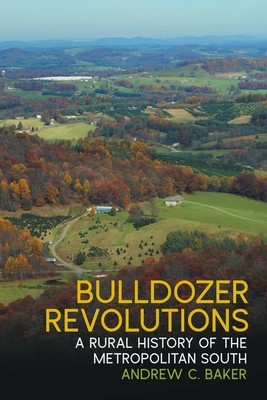
- We will send in 10–14 business days.
- Author: Andrew C Baker
- Publisher: University of Georgia Press
- ISBN-10: 0820363642
- ISBN-13: 9780820363646
- Format: 15.2 x 22.9 x 1.5 cm, softcover
- Language: English
- SAVE -10% with code: EXTRA
Reviews
Description
By examining the metropolitan fringes of Houston in Montgomery County, Texas, and Washington, D.C., in Loudoun County, Virginia, this book combines rural, environmental, and agricultural history to disrupt our view of the southern metropolis.
Andrew C. Baker examines the local boosters, gentlemen farmers, historical preservationists, and nature-seeking suburbanites who abandoned the city to live in the metropolitan countryside during the twentieth century. These property owners formed the vanguard of the antigrowth movement that has defined metropolitan fringe politics across the nation. In the rural South, subdivisions, reservoirs, homesteads, and historical villages each obscured the troubling legacies of racism and rural poverty and celebrated a refashioned landscape. That landscape's historical and environmental "authenticity" served as a foil to the alienation and ugliness of suburbia. Using a source base that includes the records of preservation organizations and local, state, and federal government agencies, as well as oral histories, Baker explores the distinct roots of the environmental politics and the shifting relationship between city and country within these metropolitan fringe regions.EXTRA 10 % discount with code: EXTRA
The promotion ends in 20d.02:32:41
The discount code is valid when purchasing from 10 €. Discounts do not stack.
- Author: Andrew C Baker
- Publisher: University of Georgia Press
- ISBN-10: 0820363642
- ISBN-13: 9780820363646
- Format: 15.2 x 22.9 x 1.5 cm, softcover
- Language: English English
By examining the metropolitan fringes of Houston in Montgomery County, Texas, and Washington, D.C., in Loudoun County, Virginia, this book combines rural, environmental, and agricultural history to disrupt our view of the southern metropolis.
Andrew C. Baker examines the local boosters, gentlemen farmers, historical preservationists, and nature-seeking suburbanites who abandoned the city to live in the metropolitan countryside during the twentieth century. These property owners formed the vanguard of the antigrowth movement that has defined metropolitan fringe politics across the nation. In the rural South, subdivisions, reservoirs, homesteads, and historical villages each obscured the troubling legacies of racism and rural poverty and celebrated a refashioned landscape. That landscape's historical and environmental "authenticity" served as a foil to the alienation and ugliness of suburbia. Using a source base that includes the records of preservation organizations and local, state, and federal government agencies, as well as oral histories, Baker explores the distinct roots of the environmental politics and the shifting relationship between city and country within these metropolitan fringe regions.

Reviews